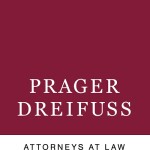In December 2016, the Financial Action Task Force (FATF) published its fourth country report on Switzerland. The report acknowledged the generally good quality of the Swiss system in place for combating money laundering and terrorist financing. However, the FATF also identified certain weaknesses and made corresponding recommendations.
The Swiss Federal Council (government) subsequently instructed the Swiss Federal Department of Finance to prepare a consultation draft that takes into account the findings and recommendations of the FATF country report and enhances the integrity of the Swiss financial centre. This consultation process ended in September 2018.
On June 26 2019, the Swiss Federal Council published the dispatch on the amended Anti-Money Laundering Act (AMLA) and its draft legislation. The revision of the AMLA has been the subject of heated debate over two years. Nevertheless, on March 19 2021, the Swiss Parliament adopted the revised AMLA. The revised AMLA, including its implementing secondary legislation is expected to enter into force by mid-2022.
|
|
“Switzerland is likely to continue to face pressure to tighten money laundering rules in the near future” |
|
|
One of the contentious provisions in the draft legislation was the envisaged inclusion of so-called ‘advisors’ in the scope of the AMLA duties. Advisors have been defined as physical or legal persons, who are commercially active in connection with the incorporation, management or administration of domiciliary companies and trusts as well as with the organisation of raising of funds in this context.
In addition, the purchase and sale of domiciliary companies as well as providing addresses or premises as a domicile for a domiciliary company or trust would have fallen under the scope of the AMLA. In particular, lawyers and notaries would have been affected by this amendment. Ultimately, this proposed amendment was rejected by the Swiss Parliament, mainly in order to protect the attorney-client privilege.
The AMLA applies to (i) financial intermediaries as defined in Article 2 of the AMLA and to (ii) natural persons and legal entities commercially dealing in goods and which, in doing so, accept cash (dealers).
Dealers under Article 2 of the AMLA must fulfil certain duties if they accept more than CHF100,000 in cash in the course of a commercial transaction. The threshold recommended by FATF had been US$/€15,000. However, the proposed decrease of the threshold for cash payments in the precious metals and gemstone trade from CHF100,000 to CHF15,000 was rejected by the Swiss Parliament.
The most important changes to the AMLA are briefly described below.
Verification of the beneficial owner
Pursuant to the existing Article 4 paragraph 1 of the AMLA, the financial intermediary has to establish the identity of the beneficial owner with the due diligence required under the prevailing circumstances. In practice, the financial intermediary usually requires a written declaration from its customer for this purpose stating the identity of the individual who is the beneficial owner.
Pursuant to the revised AMLA, the financial intermediary will in future not only have to establish the identity of the beneficial owner but also need to verify the information so received. Article 4, paragraph 1 revised AMLA provides that the financial intermediary must exercise due diligence required under the circumstances to establish the identity of the beneficial owner and to verify his/her identity in order to ascertain who the beneficial owner is.
According to the government dispatch, the financial intermediary may take a risk-based approach and thus, depending on the type of contracting party, apply different measures to ensure the plausibility of the information on the beneficial owner. The form and depth of the review by the financial intermediary is not specified in the dispatch. It is only stated that the legal duty to verify the beneficial owner is not sufficiently fulfilled by merely requesting a copy of the identity document of the beneficial owner for the files.
Duty to update all business relationships
The current AMLA obliges financial intermediaries to repeat the verification or establishment of the identity only in the event doubts arises about the identity of a customer or beneficial owner during the course of a business relationship. In its last country report on Switzerland, the FATF qualified the lack of a general and explicit obligation to ensure that client data is up to date as a significant deficiency.
The revised AMLA now stipulates that client data must be periodically checked and, if necessary, updated. The obligation applies to all business relationships regardless of their risk. A risk-based approach only applies with respect to the frequency and scope of review.
The obligation to update client data relates both to the identification of the contracting party under Article 3 of the AMLA, the identification of the beneficial owner under Article 4 of the AMLA, and to the more general review of the client profile. The updating of data and documents shall be made in accordance with the legal provisions in force at the time of updating. This will inevitably lead to a considerable time and energy being expended by financial intermediaries with large and long-standing client bases.
Duty to report suspicious activities
A further revision of the AMLA concerns the duty imposed on financial intermediaries under Article 9 of the AMLA to report suspicious activities to the Money Laundering Reporting Office in Switzerland (MROS). Under the existing law, financial intermediaries must immediately file a suspicious activity report (SAR) in cases of “actual knowledge of or reasonable grounds to suspect” a criminal origin of assets. However, pursuant to case law, a simple suspicion already triggers the statutory duty to file an SAR. The threshold for the duty to file an SAR is thus minimal.
During the parliamentary sessions, it was argued that the low ‘simple suspicion’ threshold created legal uncertainty and led to a high number of SARs and a backlog at MROS. Furthermore, the Swiss Parliament noted that the violation of the duty to report can result in harsh sanctions, e.g. fines of up to CHF500,000 and/or a professional ban, therefore requiring more legal certainty.
Under the revised AMLA, Article 9 has been supplemented by a new paragraph 1quarter, which reads as follows: “In the cases under paragraph 1, there shall be a reasonable ground to suspect if the financial intermediary has a concrete indicium or several indicia that paragraph 1 lit. a) may be fulfilled in respect of the assets involved in the business relationship and this suspicion cannot be rebutted on the basis of additional verifications pursuant to Article 6”. Thus, if the financial intermediary has concrete indications or several indications that assets could originate from a predicate offence to money laundering, he must investigate these indications and carry out in-depth clarifications in accordance with Article 6 of the AMLA. If the suspicion cannot be dispelled, it shall be deemed to be well-founded and a report must be filed.
The practical compliance duties for financial intermediaries under the new rebuttal process remain unclear. Article 6 of the AMLA does not explain which additional clarifications there are and how they are to be carried out. Some guidance may be derived from the ordinance issued by the Financial Markets Supervisory Authority which lists examples of means of investigations in Article 16 paragraph 1 of the AMLO-FINMA.
Thus, depending on the circumstances, investigations shall entail in particular (a) obtaining written or verbal information on the contracting party, the controlling person or the beneficial owner of the assets; (b) visits to the place of business of the contracting party, the controlling person or the beneficial owner of the assets; (c) consultation of generally accessible public sources and databases, and (d) if necessary, obtaining information from trustworthy individuals.
Pursuant to Article 16 paragraph 2 of the AMLO-FINMA, the financial intermediary has to check the results from these investigations for their plausibility and document the process. The documentation must be sufficient in view of Article 7 of the AMLA, thus also making it possible for a competent third party to come to a reliable judgment.
MROS
In addition, Article 9b of the revised AMLA abolishes the current deadline of 20 working days for MROS to process a report and, in return, provides a right for the financial intermediary to terminate the reported business relationship if MROS does not inform him/her within 40 working days after a report lodged pursuant to Article 9 paragraph 1 lit. a of the AMLA or Article 305ter paragraph 2 of the Swiss Criminal Code (SCC) that the reported information will be transmitted to a law enforcement agency.
The financial intermediary who wishes to terminate the business relationship may only permit the withdrawal of significant assets in a form that allows the law enforcement agency to follow up their trail (Article 9b paragraph 2 of the revised AMLA). The termination of the business relationship and the date of termination must be reported to MROS without delay (Article 9b paragraph 3 of the revised AMLA).
Improvement of transparency for associations with potential risk for financing terrorism
So far, associations are entitled, but not obliged, to be registered in the commercial register. A duty only exists if the association operates a business conducted in a commercial manner for its purpose or if it is subject to auditing due to its economic importance (Article 61 paragraphs 2 and 69b of the Civil Code).
To prevent the abusive implementation of associations for terrorist financing or money laundering, associations pursuant to Article 60 et seq. of the Civil Code with an increased risk of abuse, in particular those that collect or distribute assets abroad mainly for charitable, religious, cultural, educational or social purposes, shall in future have to be registered in the cantonal commercial register.
The entry in the commercial register makes relevant information on these associations, such as purpose, board members, authorised signatories, auditors or address publicly available to everyone. Furthermore, the obligation to enter a company in the commercial register entails the obligation to maintain comprehensive accounts in accordance with the rules of the Code of Obligations.
Similar to companies governed by the Code of Obligations, in future all associations that are (already or newly) required to be entered in the commercial register must keep a list of members with their first and last names or company name and address. The register must be kept in such a way that it can be accessed in Switzerland at any time.
In addition, a representative resident in Switzerland must be designated to have access to the membership register. The Swiss residence requirement ensures that at least one person can be questioned in any proceedings against the association without having to rely on international legal assistance.
Pursuant to a new Article 61 paragraph 2ter of the Civil Code, the Federal Council may exempt such associations from the obligation to register if they are exposed to a low risk of misuse for money laundering or terrorist financing due to the amount, origin, purpose or intended use of the assets collected or distributed.
This provision makes it possible to react to changing circumstances at ordinance level and to ensure that associations with an obviously low risk of money laundering or terrorist financing do not fall under the obligation to register. In its draft of the revised Commercial Register Ordinance, the Federal Council refrained from formulating an exception on the grounds that at the present time no circumstances are known in which an association is covered by the scope of application, but there is obviously no increased risk of money laundering or terrorist financing.
Existing associations that are already subject to registration must implement the requirements regarding the list of members and representation in Switzerland within 18 months of the entry into force of the amendments of March 19 2021. Existing associations that are newly required to register must register in the commercial register, keep a register of members and designate a representative in Switzerland within 18 months.
For an effective implementation of the new transparency requirements for associations, a new Article 327b will be introduced in the SCC, which punishes intentional breaches of the duty with regard to the register of members and representation in Switzerland with a fine. The intentional violation of the duty to register in the commercial register already falls under the existing Article 153 of the SCC (false statements to commercial register authorities) and is punishable by imprisonment of up to three years or a fine.
Outlook
On October 1 2021, the Federal Council initiated the consultation on amendments to the Anti-Money Laundering Ordinance and other ordinances. The proposed amendments provide more detail on the measures in the revised Anti-Money Laundering Act. The consultation will last until January 17 2022.
In particular the rejection of new rules for lawyers, notaries and other consultants gave rise to significant criticism remarking that loopholes for lawyers and other advisors to the wealthy are still prevalent. For example, Transparency International said in a statement that Switzerland still has troubling loopholes and remains behind minimum standards internationally, because unlike other countries it does not subject services fraught with risk like lawyers and notaries to the same laws.
Thus, although the final version of the revised AMLA is more in line with international practice, Switzerland is likely to continue to face pressure to tighten money laundering rules in the near future.

Corinne Nobs
Counsel, Prager Dreifuss
T: +41 44 254 55 55
E: corinne.nobs@prager-dreifuss.com
Corinne Nobs is a counsel at Prager Dreifuss. She is a member of the Private Clients team.
Corinne advises high net worth individuals and families on estate and asset planning and supports trusts, foundations and other organisations in regulatory compliance (AML, FATCA, CRS, etc.). She also assists Swiss and international companies with all aspects of employment law.
Corinne has a law degree from the University of St Gallen and a LLM degree from the University of London.


